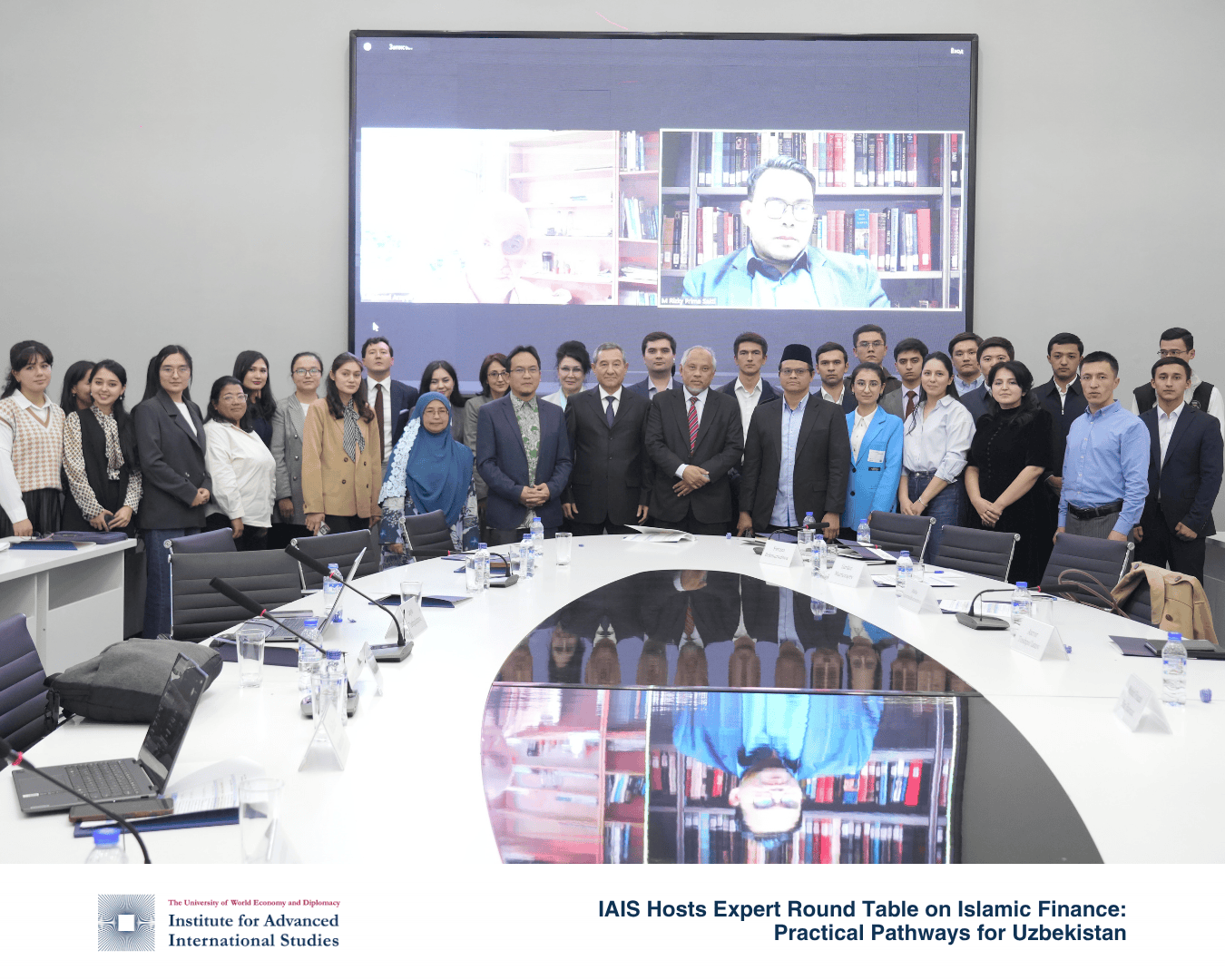
The Institute for Advanced International Studies (IAIS) at the University of World Economy and Diplomacy convened an expert round table, “Implementation of Islamic Finance: Comparative Insights for Uzbekistan’s Regulatory and Banking System”, on October 28. The discussion brought together scholars and practitioners from Bahrain, Lebanon, Malaysia and Tunisia, alongside representatives of Uzbekistan’s higher education institutions, to examine how proven international models can be adapted to local conditions and regulatory realities.
Opening the event, First Vice-Rector of UWED and Director of IAIS Dr. Akram Umarov outlined the policy relevance of Islamic finance, noting the growing role of Sharia-compliant products in expanding access to finance and attracting sustainable, long-term capital. Over two focused panels chaired by IAIS Deputy Director Odil Gafarov and Dr. Khulkar Karimova, Leading Research Fellow at IAIS’s Center for Economic Diplomacy, participants compared institutional models and supervisory approaches in jurisdictions at different stages of market development, and then pivoted to a concrete roadmap for pilot implementation in Uzbekistan’s banking sector.
Speakers from University of Malaya, Lebanese American University, Manouba University (Tunisia), and the University College of Bahrain discussed governance architectures, prudential oversight and product suites such as murābaḥa, ijāra and sukūk, including mechanisms for Shariah governance and risk management. Uzbek experts from the Center for Economic Research and Reforms, UWED and the Tashkent State University of Economics, including Dr. Gavkhar Sultanova, Head of the Center for Economic Diplomacy at IAIS, examined regulatory fit, sequencing and minimum organizational measures required for a controlled pilot in commercial banks, emphasizing consumer protection, transparency, and alignment with existing banking law.
As an outcome, IAIS will prepare an analytical report on “International Experience in Islamic Finance and the Prospects for Its Application in Uzbekistan”, synthesizing comparative lessons from Bahrain, Lebanon, Malaysia and Tunisia, assessing economic impacts and implementation risks, and setting out recommendations for regulators and market participants.
The event underscored Uzbekistan’s steady, evidence-based approach to diversifying financial intermediation and deepening capital markets by drawing on proven international practice, while ensuring coherence with domestic regulation and supervisory capacity.